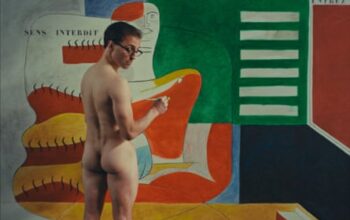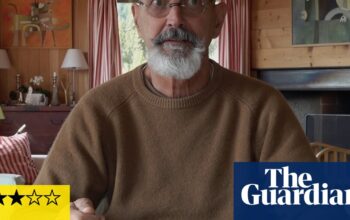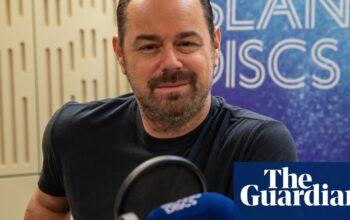Uberto Pasolini likes to say he has been thinking about adapting The Odyssey for 30 years – 10 years longer than it took Odysseus to win the Trojan war. A nephew of the director Luchino Visconti, the 67-year-old Italian film-maker has lived in London for 50 years. Pasolini, who won a Bafta for producing The Full Monty, first approached Ralph Fiennes to play Odysseus in 2011, after the actor had made his directorial debut with Coriolanus, believing Fiennes might also be able to direct the film.
They got as far as a location scout in Turkey, where Fiennes, then about to play Prospero in a Trevor Nunn production of The Tempest, practised his “Such stuff as dreams are made on” speech in an abandoned outdoor amphitheatre at dusk. “It was me and two goats,” recalls Pasolini over a video chat. “I get the hair sticking up on the nape of my neck just thinking about it. It was amazing.” Wearing glasses and with a distinguished-looking beard, he comes across like a voluble Italian academic.
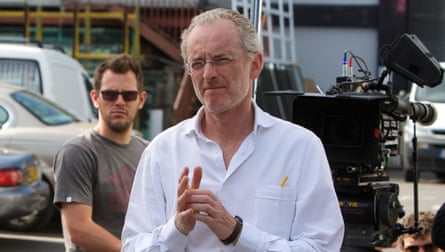
Returning from the trip, Fiennes told him: “I can’t do both. I’d love to play Odysseus, but I can’t also direct.” Undeterred, Pasolini says he kept on “benignly nagging” the actor about the project whenever they met. Then, in 2022, as Fiennes toured England’s regional theatres with a recital of TS Eliot’s Four Quartets, Pasolini had dinner with the actor in Plymouth.
They again talked about their planned adaptation of The Odyssey. Fiennes thought Pasolini should direct it himself. This time, it was the Italian’s turn to demur. “I can’t direct it,” he replied. “This is much bigger than anything else I’ve done.” But Fiennes, who had seen Pasolini’s films Machan and Still Life, pushed him to take up the reins of the project. “But what do we do about Penelope?” asked Pasolini. “It should be Juliette, of course,” said Fiennes.
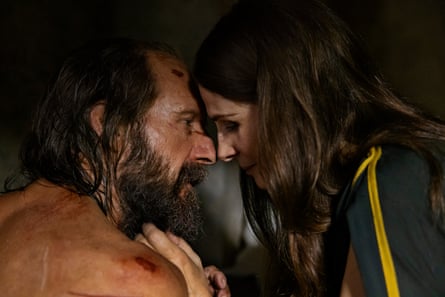
“Juliette” was Juliette Binoche, Fiennes’ co-star in Anthony Minghella’s Oscar-winning The English Patient and, before that, Wuthering Heights. “We have a very deep friendship from those two parts, even though we don’t spend that much screen time together,” says Fiennes, also over video call. He delivers thoughtful answers in his soft, limpid cadence, weirdly reminiscent of the fur on a peach, or maybe the plums Binoche fed him in The English Patient.
An approach was made to the French actor, then she and Fiennes met in Georgia, where Fiennes was filming The Menu and Binoche was shooting The Staircase for HBO. Fiennes bought Binoche a copy of Emily Wilson’s translation of The Odyssey; the pair took a selfie and sent it to Pasolini. Binoche was in. “I was emotional, actually,” says Fiennes. “Juliette has very strong instincts about what she will or won’t do. So when she said yes, there was a wonderful sense of completion.”
The finished film, The Return, was shot in two months in Corfu and just north of Rome for $20m – a fraction of the $250m Christopher Nolan has reportedly got to spend on his version of The Odyssey. The two adaptations are diametrically opposed. Featuring no gods, monsters, sirens, cyclops or six-headed monsters, Pasolini’s film compacts the last nine books of Homer’s epic poem into a film as lean and sinewy as its hero.
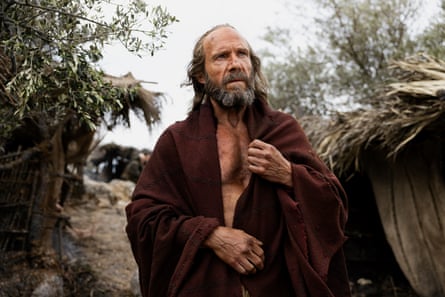
Fiennes’ Odysseus is a lost soul returning from 20 years of war, who washes up on the shore of his homeland, Ithaca, unrecognisable to his family, deeply ashamed of the “butchery” he practised on the streets of Troy and carrying guilt that he returns alone, his men all dead. He seems to accept the defacement of his kingdom – where his wife, Penelope, is beset by suitors – almost as a punishment. This is a homecoming as if from the modern theatre of war, be it Vietnam or Ukraine.
“We did do one very specific thing with the script, which is taking out the gods,” says Pasolini, who commissioned a screenplay with the writers Edward Bond and John Collee that was steeped in modern accounts of war. “It was important to us that the guilt that comes out of the wars and his dead companions, that pain, was his own doing.” It was all there in Homer’s poem, where Odysseus cries “as a woman weeps” when recounting the siege of Troy – but a line in which Fiennes’ Odysseus describes Troy as a city that “could not be conquered, only destroyed” was taken from an American captain describing the destruction of the city of Huế during the Vietnam war. That speech was pivotal for Fiennes, who loves playing men enmeshed in the workings of their own conscience, be they the adulterous Maurice Bendrix in The End of the Affair, or Cardinal Lawrence in Conclave. Even his monsters, like Coriolanus, are moral self-auditors.
“I am probably drawn to roles where [there is a] sort of undecided space in someone, where there’s a question mark about who they are and what they’re doing,” says the actor. He says his mother read him the adventures of Odysseus when he was a child, but he found the text, particularly in Wilson’s translation, had grown with him when he returned to it.
“Is Odysseus good? Essentially, he’s gone to war and done terrible things to people, and what I got from this script is he carries that on his shoulders. So, he’s not overtly a Greek hero, but he’s trying to claim something. I think the key for this is the scene where he talks around the fire about what it was to destroy Troy. I’ve not been through a war, obviously, but I was 60 when I did this,” says Fiennes, now 62. “The bulk of your life is lived. I think a sense of fatigue with life, or a sense of: ‘Well, what’s left now?’ comes to us as we get a bit older. ‘What does it all mean?’ You ask these bigger existential questions and I think all that bled into the imaginative leap I had to make. Even if you haven’t been in wars, that sense of the weight of the past – you can intuit that better.”
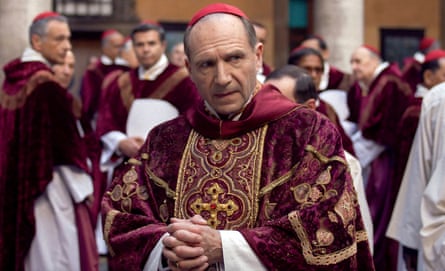
At the same time, there is an unmistakable buoyancy to Fiennes these days. The piercing, icy blue stare is still there, but the “nimbus of depression and intensity around him” that the playwright David Hare detected 25 years ago appears to have lifted, as demonstrated by the show-stopping dance around a villa to the Rolling Stones’ Emotional Rescue in Luca Gaudagnino’s 2015 A Bigger Splash. Or his more recent rendition of the influencer Jools Lebron’s viral TikTok “demure” speech (“See my shirt? Only a little chichi out …”) for CNN’s New Year’s Eve broadcast was one of the highlights of the recent Oscar season. “I started off slightly uncomfortable about the way actors are expected to present themselves repeatedly on the red carpet and at events,” says Fiennes of the three-month stretch from the release of Conclave at the end of November to the Oscars ceremony this month. “I think maybe I’ve just got a bit more relaxed about all that.”
Italian directors seem to have acted as midwives to the newfound physicality of Fiennes’s performances – after the sun-kissed luxuriance of Guadagnino’s film, the lean sinew of Pasolini’s, for which Fiennes underwent five months of physical training to get the muscular yet wiry frame of Odysseus. “Uberto was very clear. He didn’t want me to have a sort of bulked-up gym body,” says Fiennes, who told his personal trainer, Dan Avasilcai: “He should look like a bit of old rope.” Then, two and a half months before shooting, he embarked on a regime of weight-training and running and a diet rich in proteins, complex carbohydrates and vegetables to lose pretty much all the fat he had on his body. Pasolini says: “At the beginning, I have to confess, I was slightly suspicious that there was so much protein going in and so much exercise that we would have a body that looked exercised instead of a body that was consumed, a lived body. There is no gym in ancient Greece.”
In Corfu, they found forests of olive trees 30 metres high, with trunks of dark bark, that spoke to the agedness they were after. “We were very interested in the simplicity of the elements,” says the director. “So, rain and water and sand and soil and fire and blood. More than anything else, it’s a spiritual and psychological journey that he’s been on. The physicality that Ralph was able to bring to the film is the physicality of somebody who has suffered and travelled and is scarred and is dried by the sun and consumed by living in a way that maybe 20 years ago would have been more difficult. The guilt and the responsibility of war would have sat on Ralph’s shoulders and in his soul and in his eyes in a similar way. But I think we were lucky to make it when we did. He brings more to the role because of the life he’s lived.”
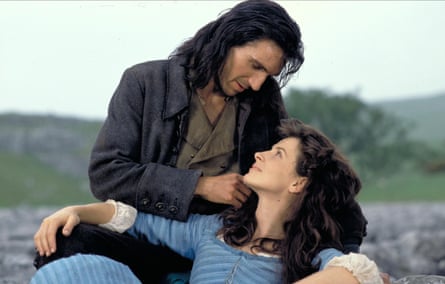
The scenes with Binoche, in particular, enjoy the resonance of a friendship that spans nearly three decades. Fiennes recalls the first scene they shot together on The Return, where Odysseus and Penelope first meet in a temple. Penelope seems to see through Odysseus’s disguise as a beggar, but does not confront her husband, so horrified is she by his self-dereliction. “Juliette was so extraordinary,” he says. “The depth of remorse and frustration and anguish she suggests were just extraordinary to witness.”
They shot the scene over two nights. Pasolini says: “There was a certain strange tension and emotion on set that had to do with the reconnection of these two individuals who had been away from one another for so long. There was a feeling on the set that there was something very, very special going on that went beyond the script.”
And for Fiennes? “I just found myself very moved,” he says. “Juliette was so extraordinary in that scene, as it should be between actors when you are really open to one another’s energies. But it moved me. It moved me as Odysseus and moved me as Ralph.”
Source: theguardian.com
